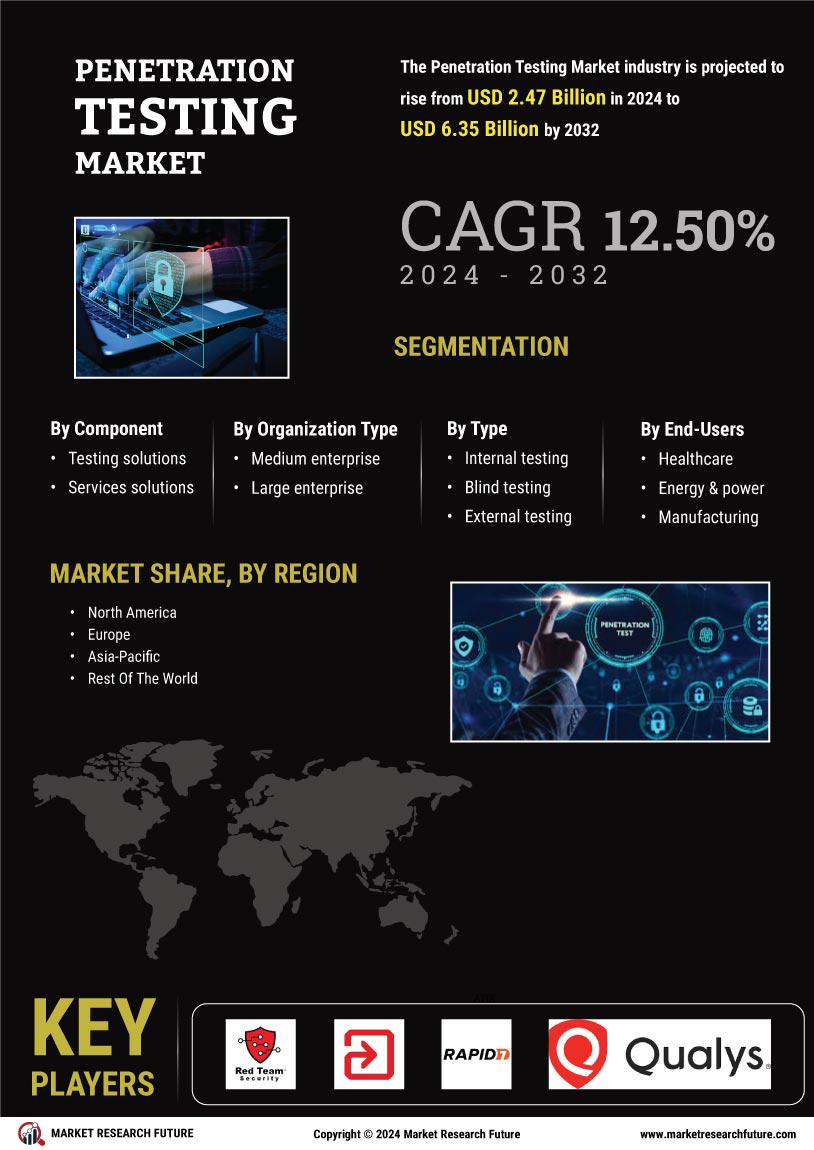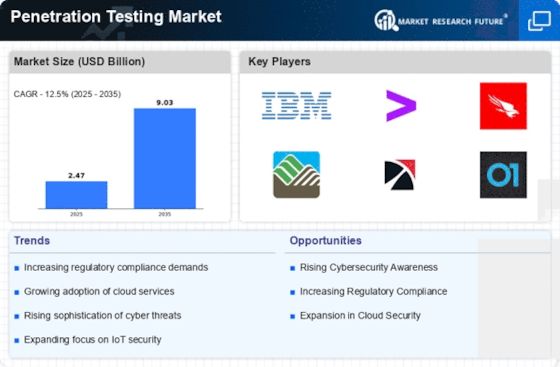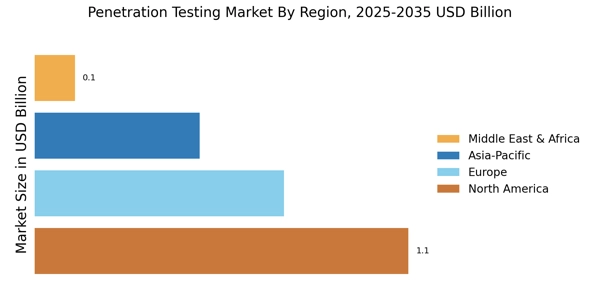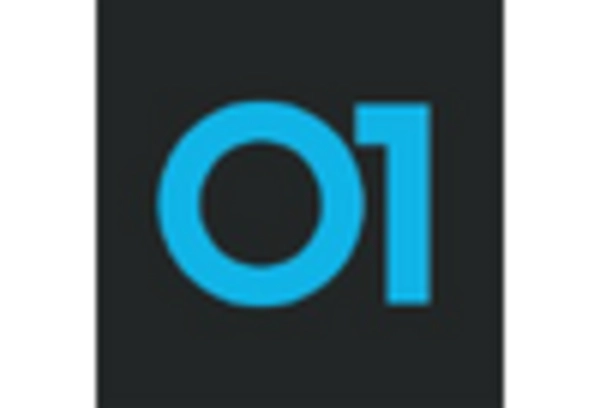Increasing Cybersecurity Threats
The Penetration Testing Market is experiencing a surge in demand due to the escalating frequency and sophistication of cyber threats. Organizations are increasingly recognizing the necessity of proactive security measures to safeguard sensitive data and maintain customer trust. In 2025, it is estimated that cybercrime will cost businesses trillions of dollars annually, prompting a heightened focus on penetration testing as a critical component of cybersecurity strategies. This trend indicates that companies are investing more in penetration testing services to identify vulnerabilities before they can be exploited by malicious actors. As a result, the penetration testing market is likely to expand significantly, driven by the urgent need for robust security solutions.
Adoption of Advanced Technologies
The Penetration Testing Market is being propelled by the rapid adoption of advanced technologies such as artificial intelligence and machine learning. These technologies enhance the efficiency and effectiveness of penetration testing processes, allowing for more comprehensive assessments of security vulnerabilities. In 2025, it is anticipated that the integration of AI-driven tools will streamline testing procedures, enabling organizations to identify and remediate vulnerabilities more swiftly. This technological evolution not only improves the quality of penetration testing but also attracts organizations seeking to leverage innovative solutions for their cybersecurity needs. As a result, the penetration testing market is poised for growth, driven by the demand for cutting-edge security solutions.
Growing Awareness of Cybersecurity
The Penetration Testing Market is benefiting from an increasing awareness of cybersecurity risks among businesses and consumers alike. As high-profile data breaches and cyberattacks make headlines, organizations are becoming more vigilant about their security postures. In 2025, it is expected that this heightened awareness will lead to a greater investment in penetration testing services, as companies seek to proactively identify and mitigate potential threats. This trend suggests that businesses are recognizing the value of penetration testing as a fundamental aspect of their cybersecurity strategies. Consequently, the penetration testing market is likely to expand as organizations prioritize security in their operational frameworks.
Regulatory Compliance Requirements
The Penetration Testing Market is significantly influenced by the growing emphasis on regulatory compliance across various sectors. Organizations are mandated to adhere to stringent regulations such as GDPR, HIPAA, and PCI DSS, which necessitate regular security assessments, including penetration testing. In 2025, the market for compliance-driven penetration testing services is projected to grow as businesses strive to avoid hefty fines and reputational damage associated with non-compliance. This regulatory landscape compels organizations to integrate penetration testing into their security frameworks, thereby driving demand for specialized services. Consequently, the penetration testing market is likely to witness sustained growth as compliance becomes a central focus for businesses.
Shift Towards Managed Security Services
The Penetration Testing Market is witnessing a shift towards managed security services, as organizations increasingly outsource their cybersecurity needs to specialized providers. This trend is driven by the desire for cost-effective solutions and access to expert knowledge in penetration testing. In 2025, it is projected that the demand for managed penetration testing services will rise, as businesses seek to enhance their security without the burden of maintaining in-house teams. This outsourcing model allows organizations to leverage the expertise of third-party providers, ensuring comprehensive security assessments. As a result, the penetration testing market is likely to experience growth, fueled by the increasing preference for managed security solutions.
















